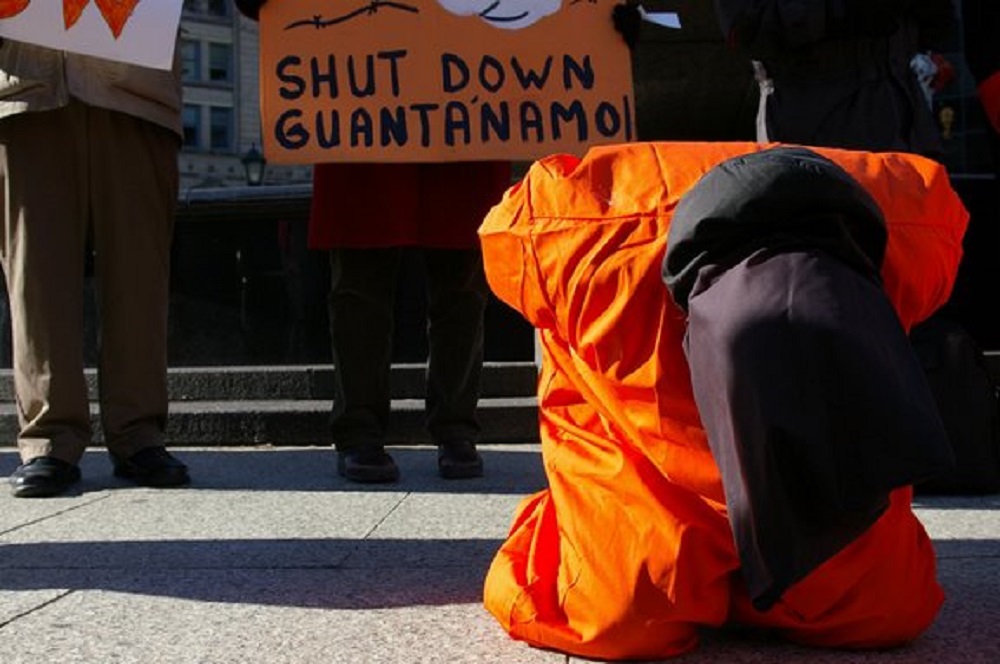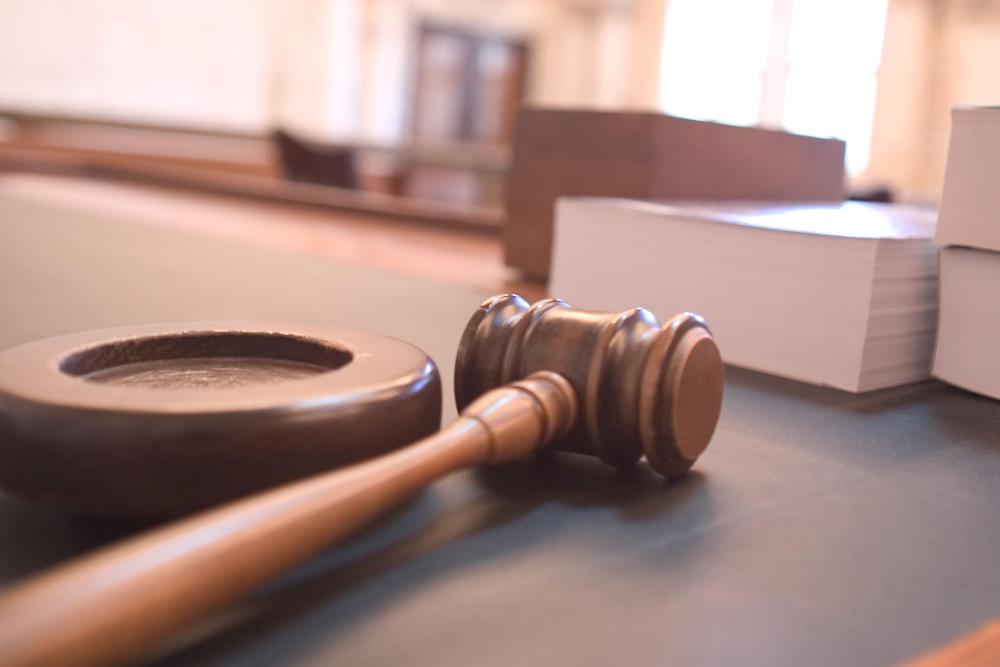Boumediene vs. Bush: The Dangers of Judicial Overreach
Undoubtedly the Supreme Court’s decision in Boumediene v. Bush will be hailed in many quarters as a great victory for the rule of law. It is not. It represents the continuing trend in our society to convert every form of decision-making into a potential cause of action. For the first time in our history, the Supreme Court in Boumediene vs. Bush has rejected the judgment of both the Congress and the President on an issue of national security. The writ of habeas corpus has now been extended to foreign nationals whose only connection to the United States is their capture by our military in time of war.
In the wake of 9/11, President Bush exercised his authority as Commander-in-Chief by ordering military commissions to be established for prisoners captured during the course of our war with Islamic extremists. In furtherance of this, he asserted that foreign nationals captured in Afghanistan during the war against the Taliban regime and al Qaeda and held as enemy combatants at the Guantanamo Bay military base in Cuba were not technically being held on US soil, and therefore could not avail themselves of US constitutional rights.But the Supreme Court felt otherwise. In Rasul vs. Bush, the Supreme Court held on June 29, 2004 that the President had overstepped his legal authority and that prisoners held at Guantanamo Bay were subject to US law including the full rights afforded to them by the Constitution, most especially the right to habeas corpus – the right to challenge the basis of their extended detention as enemy combatants beyond the normal criminal appeals process. In so doing, the Supreme Court granted enemy combatants statutory habeas corpus rights.As a result of Rasul vs. Bush (and before it Hamdi vs. Rumsfeld), the Defense Department created Combatant Status Review Tribunals (CSRTs) to determine if detainees held at Guantanamo had been correctly designated as “enemy combatants”, and Congress passed the Detainee Treatment Act of 2005 which granted the detainees a right of access to the US Court of Appeals for the D.C. Circuit in order to challenge their military determination of enemy combatant status by these CSRTs. It was an attempt to balance the requirements of the military to defend our country in time of war with due process.
But even this was insufficient for the Supreme Court. In Hamdan vs. Rumsfeld, rendered on June 29, 2006, the Court went further by ruling that the Executive Branch lacked the constitutional authority to establish military commissions to try such enemy combatants. Only Congress, it stated, had such authority, all of which led to the passage of the Military Commissions Act of 2006 on October 17, 2006. That Act provided that the Commissions could hear and consider hearsay evidence, restrict enemy combatants’ access to classified secret evidence against them, and use evidence extracted from the suspect (or other witnesses) through the use of extended interrogation techniques so long as such evidence was extracted prior to the passage of the Detainee Treatment Act of 2005.
On June 29, 2007, the Supreme Court agreed to hear the case of Guantanamo detainee Lakhdar Boumediene and on June 12, 2008, in a divided Court decision written by Justice Anthony Kennedy, the Court upheld Boumediene’s constitutional right to seek a writ of habeas corpus in federal civil court and further held that the Military Commission Act of 2006 represented an unconstitutional infringement of that right. In effect, the majority of the Court held that these military commissions set up by Congress under the Military Commission Act of 2006 were not an adequate substitute for their habeas corpus rights and went on to state that Congress can only suspend habeas corpus in incidences of rebellion or invasion. In so doing, the Supreme Court has opened the floodgates to a vast expansion of federal jurisdiction when it comes to the rights of foreign enemy combatants seized during times of war.
This is a significant break from historical precedent. In Johnson v. Eisentrager (1950), the Supreme Court held that foreign enemy aliens held in a prison in the American occupation zone in Germany had no right to seek habeas corpus in the federal courts. In that case, German nationals had been tried and convicted by a military commission for providing aid to the Japanese after Germany’s surrender in World War II. Writing for a unanimous Court, Justice Robert Jackson observed that there had never in history been an “instance where a court…….issued (a writ of habeas corpus) on behalf of an alien enemy who, at no relevant time and in no stage of his captivity, has been within its territorial jurisdiction. Nothing in the text of the Constitution extends such a right, nor does anything in our statutes.” That precedent was judiciously side-stepped in Boumediene. As the Wall Street Journal’s June 13th featured editorial notes: “By the logic of Boumediene, members of al Qaeda will now be able to challenge their status in court in a way that uniformed military officers of a legitimate army cannot.”In his dissenting judgment, Justice Scalia pointed out that this (right to habeas corpus) was not even a right afforded to the 400,000 POWs detained on American soil during World War II. Not a single one was accorded the right to have his detention validated by a habeas corpus action in federal court ….. despite the fact that they were present on US soil,” so it is difficult to understand why any terrorist held anywhere in the world in American custody should now have that right. In his concurring dissent, Chief Justice John Roberts criticized his colleagues for striking down what he called “the most generous set of procedural protections ever afforded aliens detained by this country as enemy combatants” and Justice Scalia went even further in maintaining that America is at war with radical Islamists who have been harvesting Americans since the Marine barracks bombings in Lebanon twenty-five years ago, and that this decision “will almost certainly cause more Americans to be killed.”
Justice Kennedy even conceded in his majority opinion: “It is true that before today, the Court has never held that non-citizens detained by our government in territory over which another country maintains de jure sovereignty have any rights under our Constitution”, yet, he now seems to have extended those rights to foreign enemy combatants captured abroad while engaged in a war with this country. The ruling opens the federal civilian courts to two hundred and seventy foreign enemy combatants (including fourteen suspected al Qaeda members) being held at Guantanamo Bay on suspicion of terrorism or links to terrorism.It also offers them all the Constitutional legal remedies never before granted to our enemies in wartime. The imposition of the American civilian criminal justice system on decisions regarding potentially hostile aliens raises a host of questions which the Court does not even attempt to answer in Boumediene – questions like whether our soldiers in battle must now make copious notes for trial purposes on the exact circumstances of an enemy prisoner at the time of his capture. Must a chain of custody be preserved on weapons or bombs seized from an enemy combatant? Must al Qaeda enemy combatants now be read their Miranda warning? Do they now have the right to subpoena classified evidence? What about the presumption of innocence, prompt access to counsel or privacy issues? The Boumediene majority answers none of these questions. In effect, the judiciary has usurped decisions that should be made by the military especially in time of war.As Andrew McBride writes in the Federalist Society Online Debate Series:
“Justice Kennedy’s majority opinion is fraught with the confusion between the civilian criminal justice system and the waging of war. In the area of criminal justice, the Framers placed many roadblocks in the path of a conviction and the concomitant loss of life or liberty. The guarantee of counsel, the right to subpoena witnesses, the right of confrontation of adverse witnesses in open court, and the suppression of evidence gathered in violation of law, all make sense in the context of domestic law enforcement (italics added). In order to protect liberty, we are willing to sacrifice some efficiency in our criminal justice system. Our motto remains: Let 100 guilty men go free before one innocent man is convicted… (However), the situation is entirely different when the nation faces an external threat. There is no reason for the Judicial Branch to “check” the effectiveness of the political branches in fighting our enemy. The idea of our judiciary protecting the “rights” of the Nazis or the Viet Cong from Executive overreaching is every bit as absurd as it sounds. (Had) Boumediene been decided in 1940, a right to go to court to challenge their detention would have extended to the over 400,000 axis troops held over 500 military facilities in this country during the war.”
Americans must now regard enemies as if they were mere criminal defendants, entitled to an exacting legal process – access to discovery, witnesses, counsel, etc. – that will, as a practical matter, make it impossible to detain them without shutting down interrogations prematurely and informing the enemy of our national-defense secrets.
While the opinion applies only to those incarcerated at the Guantanamo Bay military base, it leaves unaddressed the status of other foreign enemy combatants held overseas by the U.S. such as those in prisons operated by the Central Intelligence Agency. While the ACLU no doubt will rejoice at this decision, the fact remains that thirty of the people whom the military thought it was safe to release from Guantanamo Bay have already re-joined the war against us. Abdallah Al-Ajmi was released from Guantanamo in 2005 and in April 2008, he blew himself up in Iraq killing seven Iraqi security forces and wounding twenty-eight others.
At no time in our history have we ever allowed such rights to foreign enemy combatants not captured inside the US itself. Now, foreign al Qaeda terrorists detained in Cuba and possibly anywhere else in the world where they are under US military control can march into our federal district courts and demand their constitutional rights. Unfortunately for all of us, Boumediene v. Bush is a monumental example of judicial overreach and represents not only a failure to follow established legal precedent, but a massive expansion of judicial power into the areas of foreign policy and the conduct of war that the Constitution has always reserved to the president and Congress – the elected representatives of the American people. This case now effectively reverses that, unless the government henceforth chooses to bypass the issue about de facto control of the United States by turning the detainees over to foreign countries for interrogation or detention. To protect the lives of Americans in combat overseas, they may have no other alternative. Failing that, God help us if the next person released from Guantanamo because of the expansion of these rights to them turns out to be a mass murderer like Khalid Sheik Mohammad or Mohammad Atta.




